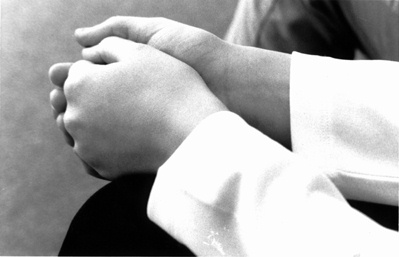All Nonfiction
- Bullying
- Books
- Academic
- Author Interviews
- Celebrity interviews
- College Articles
- College Essays
- Educator of the Year
- Heroes
- Interviews
- Memoir
- Personal Experience
- Sports
- Travel & Culture
All Opinions
- Bullying
- Current Events / Politics
- Discrimination
- Drugs / Alcohol / Smoking
- Entertainment / Celebrities
- Environment
- Love / Relationships
- Movies / Music / TV
- Pop Culture / Trends
- School / College
- Social Issues / Civics
- Spirituality / Religion
- Sports / Hobbies
All Hot Topics
- Bullying
- Community Service
- Environment
- Health
- Letters to the Editor
- Pride & Prejudice
- What Matters
- Back
Summer Guide
- Program Links
- Program Reviews
- Back
College Guide
- College Links
- College Reviews
- College Essays
- College Articles
- Back
Genetic Screening: Early Diagnosis Saves Lives
Imagine you could take a test that would determine the chance you would get Breast Cancer. If it was positive, you could get a biopsy, a test that takes a sample of tissue to see your probability of a genetic disease. Getting a positive on both tests is the story of one 27 year-old from New Haven.
CNN iReport writer NSeagriff has a winding history of Breast Cancer in her family that began well before she was born. Numerous women in her family have been diagnosed with Breast Cancer including her grandmother, aunt, and mother. “My mom too found out she had breast cancer, which was thankfully caught early due to vigilant screening,” she wrote in her article. It was just a matter of time before her doctor encouraged her to test, too, due to her history. “I went for testing a few weeks later recognizing that I had a 50% chance of having the gene,” she also wrote. But, being healthy, fit, and twenty seven, she was fairly confident her test would be negative. She came back with a positive BRCA2 , a genetic code for Breast Cancer. along with her mother. “It was a scary result, but not something that was very surprising to us given what our family had been through,” NSeagriff wrote in her article. She then had a biopsy to confirm her suspicions and to avoid worrying her family. “Right after my biopsy, my nurse’s instinct told me something wasn’t right.” At age twenty seven, the biopsy had found Breast Cancer in her tissue.
This is one of the many incidents that genetic screening has made early detections of one of the hundreds of test available. It can saves lives, like it did for NSeagriff, by being diagnosed early enough to get treatment. But genetic screening has not only helped adults get diagnosed and treated. It has also helped diagnose babies so they can get treatment after birth. Tests can be preformed before and after birth by taking a spit or blood sample from one or both parents. If the baby has already been born, they can do the test on the baby. One disease that has been tested for is Phenylketonuria. Testing used to detect Phenylketonuria in babies has improved or saved many lives (Griswold, Genetic Screening: Overview) And another disease, Tay-Sachs disease, has gone down in risk by 90% due to parents getting tests and deciding not to have children (Griswold, Genetic Screening: Overview) The human population has become healthier and more aware to diseases in their body due to screening.
More people in the world need to get genetic screening before deciding to have kids and when they know they have a history of a certain disease in their family. Parents could then decide if they want to have children if they had risk of disease. People who have a family history can confirm if they additionally have that disease, and then get treatment, if necessary. Overall, it helps speed up the process of breeding out genetic diseases, is safe, doesn’t mess with a person’s genetic makeup, and will help create a better and healthier population for the future.

Similar Articles
JOIN THE DISCUSSION
This article has 0 comments.
